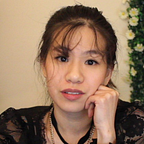The Mass Murder and Hate Crime against Asian Women
On March 16th, 2021 eight people were murdered in a mass shooting across three spa locations in the Atlanta, Georgia metro area. 6 of 8 victims were Asian women. For many of us who read the news, it seemed appalling to call this out as anything but a hate crime. These shootings were calculated and targeted. Not something you do when you’re “having a bad day” or simply in the way of venting.
This tragedy isn’t the first Asian hate crime. I am heartbroken over the violence and crime against Asian Americans. But this certainly won’t be the last report we hear of this year. I write this post to share my opinions about the murder and hate towards Asian women. I also write this post to change the perceptions people may have about this hate crime.
The thing about hate is that you can’t control how other people feel about you. Someone else owns those emotions, those perceptions, those actions that they take by their own will. That’s the danger of fanning the flames, pointing fingers, and perpetuating racism and discrimination.
A hate crime is a crime biased against a group of people based on their race, color, religion, national origin, sexual orientation, gender, gender identity, or disability. This kind of prejudice doesn’t target only one person but given the opportunity, anyone who may be similar to the crime’s target. That’s why hate crimes affect families, communities, and many times a nation.
Some law enforcement and media outlets are afraid to report this tragedy as a hate crime. They want to say that the assailant had a bad day, that he had a sexual fetish for Asian women, that these now crime scenes were massage parlors, implying that sex workers were involved. This doesn’t excuse that this was a hate crime.
Someone else said it best when they said it feels like Asian women are lesser than and still second-class citizens in many people’s eyes today. It makes me angry and sad that there’s this perception that still exists today about losing less because of someone’s occupation, race, gender, etc. These women and victims had the rest of their lives before this week. We lost people this week, people who belonged to their communities — someone’s significant other, someone’s mom, someone’s sister, someone’s daughter. And I’m heartbroken.
To my readers, I encourage you to reflect on your perceptions of Asian women. This assailant clearly had a box defined for Asian women to fit in, his own fantasy and convoluted fetishes that Asian women are supposed to follow. And when they didn’t, he snapped. The hyper-sexualization of Asian women says that Asian women aren’t real people. They are sexual objects that don’t have anything more to contribute outside of being a part of someone’s sexual fantasy.
I can’t change my heritage or the physical features that define me. I am an Asian woman through and through, even in the face of stereotypes, violence, hate, or crime. I certainly can’t erase my culture either. But I write this to reflect on how hate crimes affect more than just the victims. I write to encourage myself to remember the human and reflect on the perceptions I have towards groups of people experiencing hate crimes in the U.S. and world today.
My last note is to try paying attention to your responses to hate crimes against certain groups of people. If you can’t empathize or even sympathize because you can’t imagine what it feels like to be someone affected by mass murder, you may have the wrong kinds of perceptions for that group of people.
